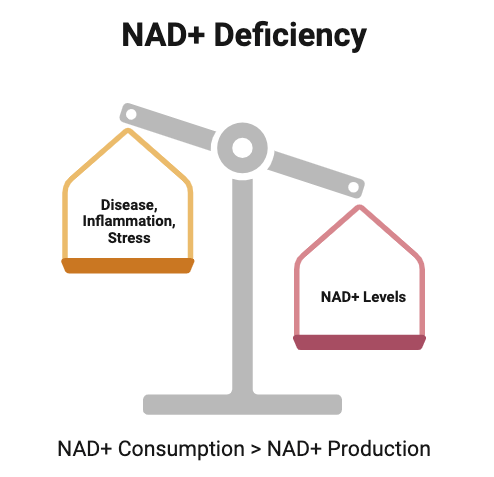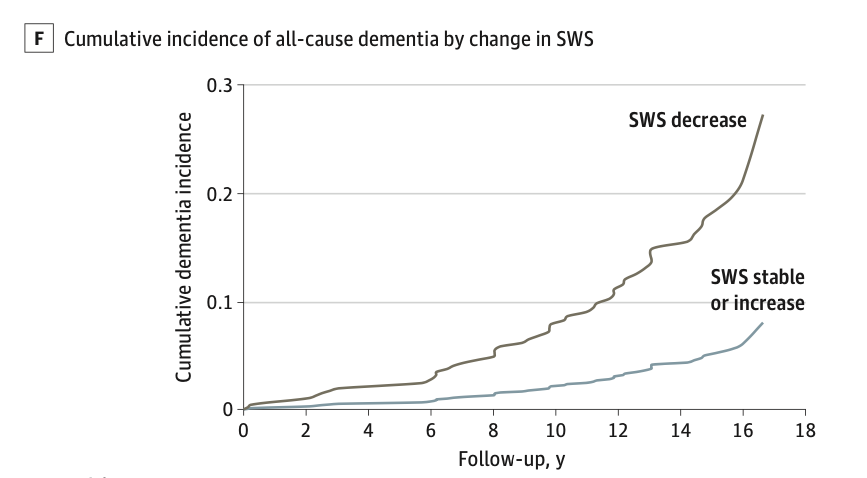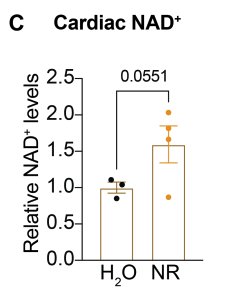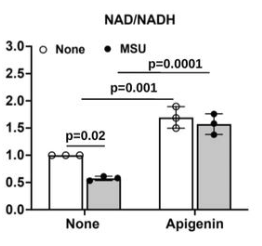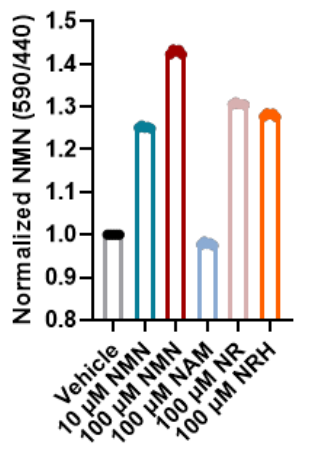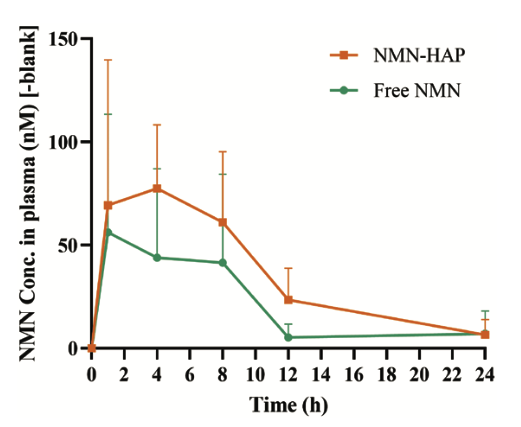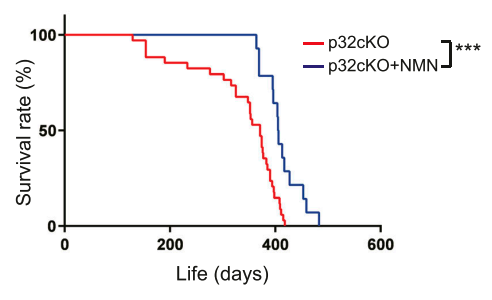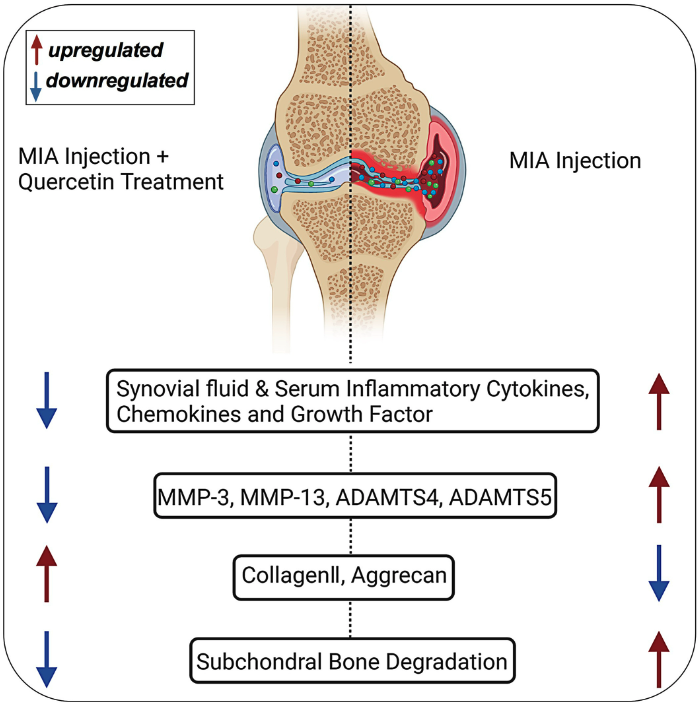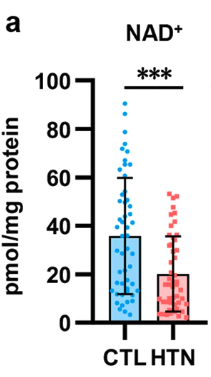Many diseases and biological stressors disrupt NAD+ metabolism and are associated with low levels of NAD+, such as obesity, infection, alcohol consumption, and high blood pressure.
Category Archives: Research
“These data from a community-based sample demonstrate that SWS percentage declines over time in adults 60 years and older and that greater declines are associated with the risk of future dementia.”
Circadian rhythm is your body’s internal clock that permits anticipation of daily patterns, regulating when it’s time to sleep, wake up, eat, and digest. This study evaluated the effects of NR supplementation on age-related changes in the heart’s circadian rhythm.
This study evaluated the effects of Apigenin and Nicotinamide Riboside (NR) on factors associated with gouty arthritis.
A study reported new insights into NAD+ precursor dynamics using a novel method to follow NMN uptake and metabolism in cells.
“Upon oral administration, NMN–HAP nanoparticles demonstrated prolonged circulation time and enhanced bioavailability compared with free NMN, leading to elevated plasma levels of both NAD+ and its precursor, NR.”
Hesperidin is a flavonoid, a type of plant compound that has been shown to have a wide range of health benefits. It is found primarily in citrus fruits, such as oranges, lemons, grapefruit, and limes. Hesperidin exhibits anti-inflammatory and antioxidant activity, protecting cells from two key contributors to the onset of age-related and chronic diseases: inflammation and oxidative stress.
Modern research supports the traditional uses of Ashwaganda, showing it may help reduce stress, anxiety, fatigue, improve cognitive function, boost the immune system, and help manage blood sugar levels.
“These results suggest that NMN treatment functionally ameliorated or prevented exacerbation of heart failure in p32 cardiomyocyte–specific knockout mice, thereby prolonging their lifespan.”
This study showed that Quercetin protected rats with osteoarthritis against bone and cartilage damage by reducing inflammation and modulating levels of proteins associated with cartilage health.
“Overall, the present study may shed new light on novel strategies in which NAD+ boosting therapy, including NMN supplement and CD38 inhibition, may turn out to be a promising therapeutic measure to treat patients with hypertension.”
5-hydroxytryptophan (5-HTP) is a natural substance that the body makes to produce serotonin, a neurotransmitter that helps regulate mood, sleep, appetite, and pain.
Supplementation with 5-HTP has shown to increase levels of serotonin in the body, which has potential benefits for a number of conditions.

